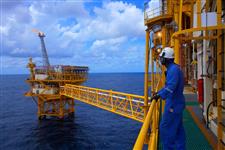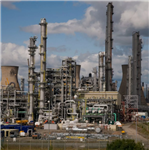
Recovery of Oil from Decaying Tanker Off Yemen Set to Commence
Posted 17/07/2023 10:51
The United Nations announced that the transfer of petroleum from a decaying vessel off Yemen is expected to begin this week in order to prevent a potential Red Sea spill.
According to the UN, the Safer, a 47-year-old floating storage and offloading (FSO) facility owned by the Yemeni state's Safer Exploration & Production Operation Co., has remained inactive at the Ras Isa port in rebel-controlled Hodeidah city since the escalation of Yemen's civil war in 2015. Holding approximately 1.14 million barrels of light crude oil, the Safer has posed a significant risk.
In a press release, the UN stated that the replacement vessel assigned to carry out the oil recovery has departed from Djibouti and is en route to the recovery site.
"Upon the arrival of the replacement vessel, the oil aboard the Safer will be extracted through a ship-to-ship transfer, which is anticipated to take about two weeks to complete," the UN explained.
The UN Development Program (UNDP), leading the oil removal operation, has entrusted the salvage operation to SMIT Salvage, a subsidiary of Royal Boskalis Westminster NV. SMIT Salvage has successfully stabilized the FSO since its arrival at the site on May 30, as confirmed by the UN.
UNDP Administrator Achim Steiner expressed on Saturday, "With the Nautica currently en route, we expect the oil removal process from the Safer to commence within the next week. Eliminating the threat posed by the Safer will be a tremendous achievement for the numerous individuals who have dedicated months and years to this complex and challenging project. We will not cease our efforts until the threat has been completely averted, and today we are on the brink of initiating the operation."
The UN emphasized that any leakage from the Safer could result in a severe environmental and humanitarian catastrophe. UN coordinator for Yemen, David Gressly, informed the UN Security Council on July 10 that SMIT has certified to the UNDP that the oil transfer can proceed within an acceptable level of risk. However, Gressly acknowledged that the operation still carries residual risk and stated, "The United Nations, along with its partners, has established a robust crisis management team based in Hodeidah and has assembled the necessary expertise and equipment to respond promptly in the event of an incident."
The UN's operation plan, published on April 22, 2022, estimated the cost of the undertaking to be $144 million. However, rising costs of Very Large Crude Carriers (VLCCs) and other factors have led to an inflated working budget, with the emergency phase estimated at approximately $129 million, as per information on the UN website.
In the event of a spill, the UN has cautioned that cleanup costs could soar to $20 billion.
Failure to prevent a spill would have dire consequences, including a 25-year recovery period for fish stocks and the potential closure of nearby ports essential for the transfer of food, fuel, and lifesaving supplies. The UN highlighted the significant impact on vital shipping through the Bab al-Mandab Strait to the Suez Canal, which could cost billions of pounds per day, similar to the disruption caused by the Ever Given blocking the Canal in 2021. Additionally, tourism around the Red Sea would suffer, and damage to mangroves is expected.
Gressly indicated that the completion of the oil transfer is anticipated to take two weeks. However, he emphasized that preventing the worst-case scenario of a massive oil spill is just one part of the operation. The next crucial step involves the delivery and installation of a catenary anchor leg mooring (CALM) buoy to securely accommodate the replacement vessel. The CALM buoy must be in place no later than September, as currents and winds become increasingly hazardous in October.
The internationally recognized Yemeni government has pledged $5 million in support, in addition to $95 million committed by donors, including $12 million from the private sector as of March 18, according to the UN.
The second phase of the operation requires $19 million, as stated by the UN.









